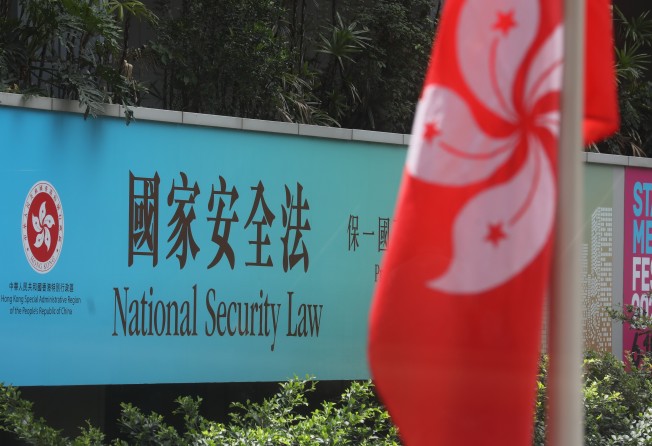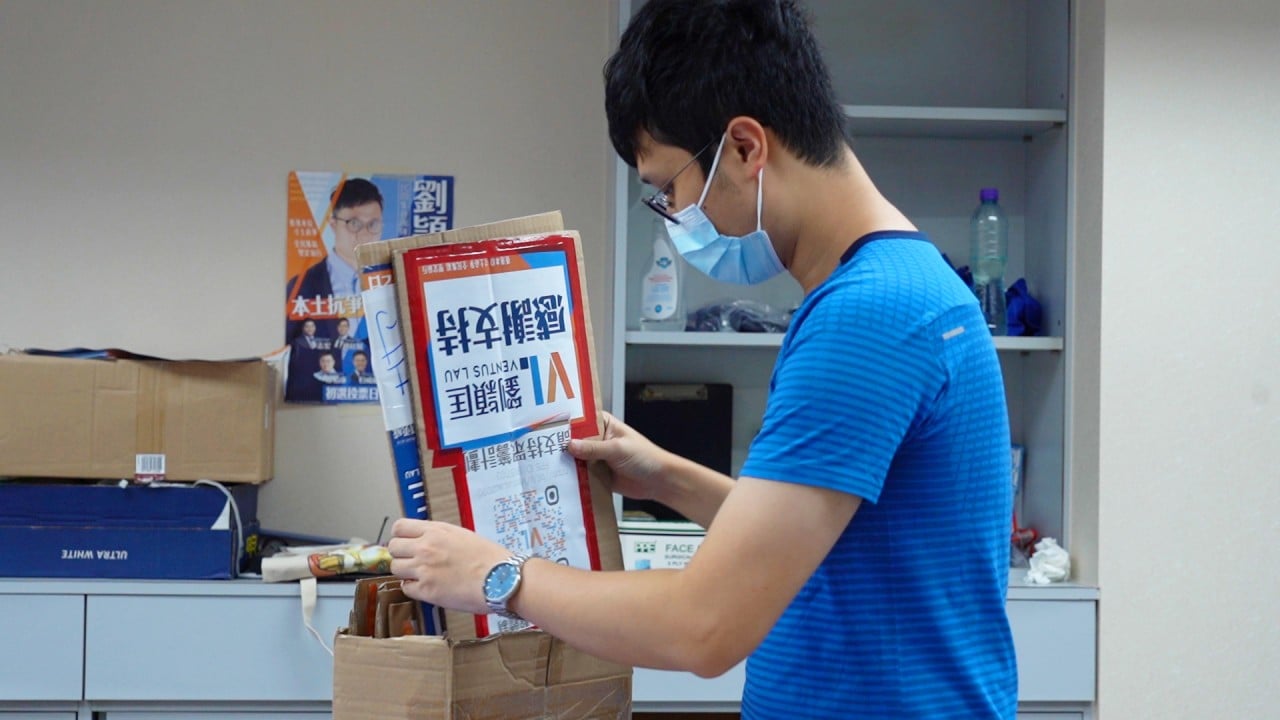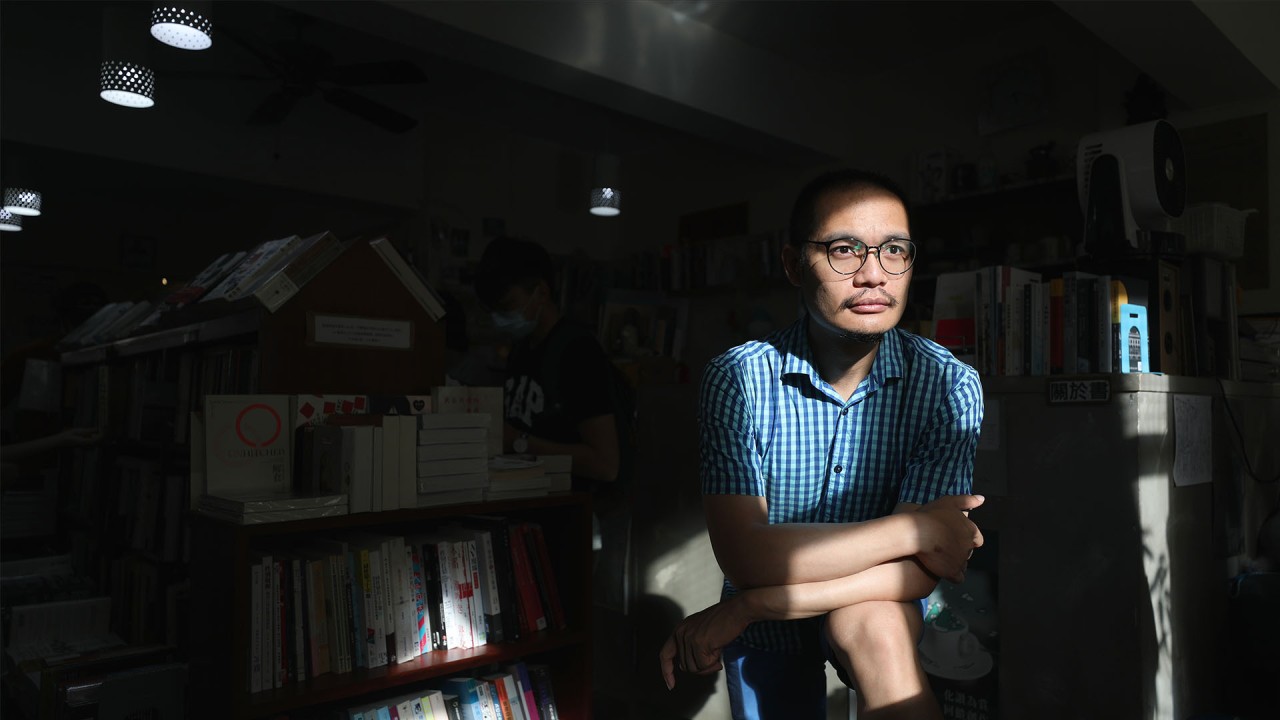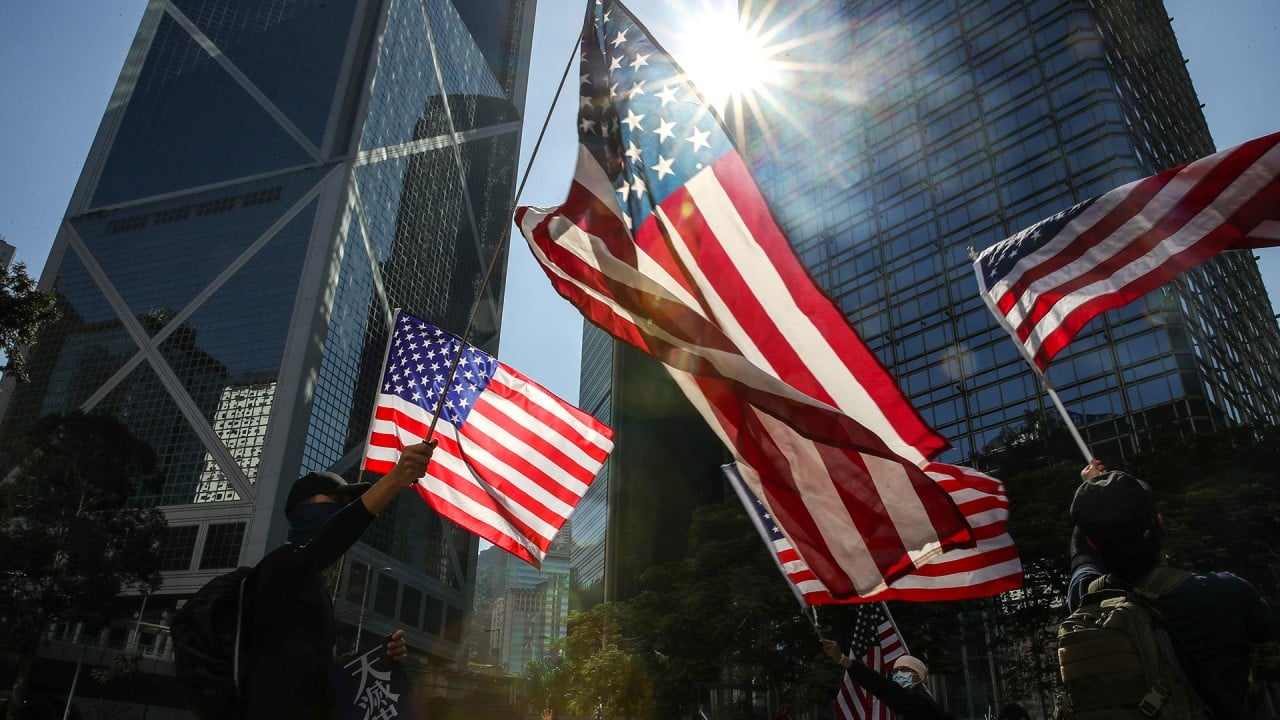Global Impact newsletter: Hong Kong becomes punching bag in US-China brawl
- Global Impact is a fortnightly curated newsletter featuring a news topic originating in China with a significant macro impact for our newsreaders around the world
- In the seventh edition we will look at the impact of the Hong Kong national security law and how US sanctions in response to it are affecting the city and its people

Hong Kong has been one of the flashpoints in the rapidly deteriorating relationship between the United States and China. The new Hong Kong national security law, imposed on the city by Beijing, prompted a series of US punishments, including the sanctioning of 11 top Hong Kong and mainland officials. The impact of those moves are still reverberating today.
The Hong Kong sanctions are just one aspect of Washington’s campaign to clamp down on China. The trade war that started in July 2018 was soon accompanied by a tech war, with the US gradually ratcheting up sanctions on national telecoms champion Huawei and ordering a ban on TikTok if it is not sold to a US company. Now, there is a risk of a financial war, with the possible delisting of Chinese firms from US stock exchanges and the US potentially using access to the US dollar payments system as a weapon.
But the latest round of escalation started with Hong Kong.
At the end of the day, Beijing was just fed up with the inability of the Hong Kong government to stop anti-government protests and violence by radical fringe elements that accompanied them. Since the Hong Kong government had failed on several occasions to pass its own national security law, Beijing decided to draft its own version and impose it on the city.
The new national security law – implemented on July 1, the 23rd anniversary of Britain’s handover of the city – drew immediate condemnation from the European Union, Britain, Germany, Canada, Australia and New Zealand, and calls for countries worldwide to suspend extradition treaties with Hong Kong. But the US had the strongest reaction.
In late May, after Beijing announced its intention to impose the national security law on Hong Kong, US President Donald Trump ordered that Hong Kong’s special trading privileges and the US extradition treaty with the city be cancelled because it was no longer autonomous from mainland China. He warned further sanctions would come.
Under the new Hong Kong Autonomy Act passed by the US Congress in mid-July, the US State Department placed sanctions on 11 Hong Kong and mainland officials, including Hong Kong chief executive Carrie Lam Cheng Yuet-ngor, denying them access to the US and allowing Washington to seize their US assets. Both Beijing and Hong Kong blasted the US move, which will make the lives of the officials more difficult.
In addition, any US or foreign bank that continues to do business with the 11 individuals could be sanctioned in a year’s time, including potentially being fined or denied permission to operate in the US market. This has led banks to be on high alert and to pore over their books to see if any of the 11 were clients.

05:50
What you should know about China's new national security law for Hong Kong
Foreign firms are fretting about what the new US sanctions mean for Hong Kong’s role as the key financial centre in Asia. And they worry that any steps to comply with US sanctions would violate provisions of the national security law.
The imposition of the US sanctions – along with sanctions on an organisation and several individuals for their involvement in alleged human rights abuses in western Xinjiang province or in helping to build fortified islands in the disputed regions of the South China Sea – have raised concerns in Beijing that the US could restrict or even cut off the access of Chinese banks to the international US dollar payments system, as it has done with a number of countries including North Korea, Venezuela, Iran and, to a less extent, Russia. However, analysts agree that this “nuclear option” is unlikely given the adverse impact it would have on the world economy that is still only gradually recovering from the impact of the coronavirus pandemic.
In its latest step two weeks ago, the US formally suspended three agreements with Hong Kong, including its extradition treaty with the city.
Further US moves against China and Hong Kong are possible in the run up to the US presidential election on November 3, particularly given the sharp condemnation of China by Trump in his recent campaign speeches and his prediction that Hong Kong’s financial markets would implode. Rather than focus on retaliation, Beijing is instead working to shore up its domestic economy to withstand possible further action.
60 second catch-up
Deep Dives
How is Hong Kong’s national security law having an impact two months on?
- Beijing-decreed legislation continues to dominate the agenda since its introduction on June 30
- High-profile arrests, suspension of extradition deals involving Hong Kong and responses by social and traditional media feature heavily
Hong Kong has lived under the new national security law for two months now. The reverberations from the Beijing-imposed legislation, which took effect on June 30, continue to be felt.
According to both local and central governments, the law, which gives authorities powers against acts of secession, subversion, terrorism and collusion with foreign forces, would target only a criminal minority. However, its effects have been wide-ranging, from finance to media.
Read the full story here.

06:00
What’s next for Hong Kong’s Legco after security law disqualifications and pandemic poll delay?
Age of national security law and fleeing Hong Kong activists stir memories of nine-hour swims, brushes with death on the waves for veteran trio
- Cai Chongguo, Lew Mon-hung and Tsang Kin-shing remember the dangers at sea all too well
- ‘They were definitely risking their lives, as a speedboat could hardly stand the strong waves,’ says Tsang, a veteran of multiple journeys to the disputed Diaoyu Islands
The recent capture at sea of 17 young Hong Kong activists as they attempted to escape to Taiwan was an all-too-familiar tale for older Hongkongers who risked life and limb in perilous journeys into or out of the city by water, but for three men, the story was deeply personal.
Memories of their own brushes with danger came flooding back for Cai Chongguo, Lew Mon-hung and Tsang Kin-shing when news emerged on Wednesday that the mainland Chinese coastguard had arrested 12 local activists allegedly en route to Taiwan.
Read the full story here.

04:30
Independent bookstores struggle under national security law in Hong Kong
Hong Kong’s police chief moved mortgage to Chinese bank ahead of sanctions
- The mortgage for the Pok Fu Lam flat was transferred from HSBC on August 4, three days before the US sanctioned Chris Tang Ping-keung and 10 others
- The US can sanction banks who engage in ‘significant’ transactions with individuals who impede the city’s autonomy
Hong Kong’s police chief, among 11 officials sanctioned by the United States government over China’s national security law for the city, shifted his mortgage from HSBC to Bank of China (Hong Kong) days before the US enacted its policy, according to public records.
Commissioner of Police Chris Tang Ping-keung transferred the mortgage for his 439 sq ft (41 square metre) flat on August 4, three days before US sanctions were announced, according to the Land Registry’s records. He bought the flat at Chi Fu Fa Yuen in Pok Fu Lam in March 2017 for HK$6.25 million (US$806,000).
Read the full story here.

02:19
Hong Kong national security law leaves ‘Lennon Walls’ in restaurants blank, protest posters out
Hong Kong’s vow to fight US over ‘Made in China’ ruling sparks debate
- Hong Kong confirms intention to launch a World Trade Organisation case over Donald Trump’s order requiring ‘Made in China’ labels on goods exported from the city to the United States
- Some experts are imploring city authorities to stand up to perceived US bullying, but others warn of ‘kicking the hornet’s nest’
On April 24, 1986, when Hong Kong became an independent member of the global trading system in its own right, Michael Cartland stood up from his erstwhile British colleagues within the European Community’s delegation and walked over to take Hong Kong’s seat between Haiti and Hungary.
More than a third of a century later, Hong Kong is facing an existential crisis in the system in which it has thrived for decades.
Read the full story here.

06:21
Hong Kong and the US: how much do they rely on each other economically?
Global Impact is a fortnightly curated newsletter featuring a news topic originating in China with a significant macro impact for our newsreaders around the world.